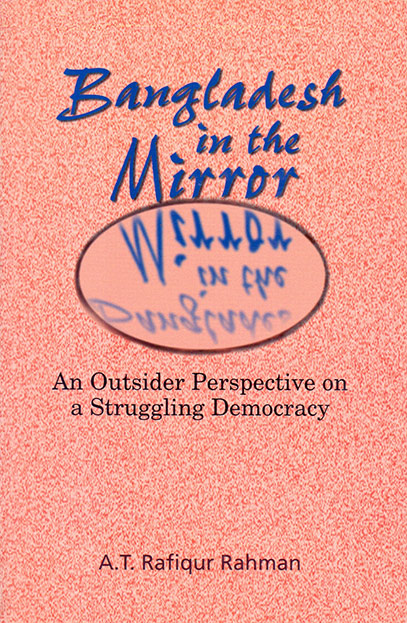Bangladesh in the Mirror: An Outsider Perspective on a Struggling Democracy
https://uplbooks.com/shop/9789840517718-bangladesh-in-the-mirror-an-outsider-perspective-on-a-struggling-democracy-8232 https://uplbooks.com/web/image/product.template/8232/image_1920?unique=3d813f3
| Language: English |
Tags :
Book Info
The challenge of establishing a functional democracy essential for national development has eluded many less developed countries. Bangladesh has been struggling to meet the challenge since its inception. Bangladesh in the Mirror compares the hopes of Bangladesh at independence in 1971 with the reality that exists today. While this book acknowledges the country's accomplishments, it also shows that the aspirations and potential of the Bangladeshi people have been thwarted by a fragile political and administrative system. It identifies the underlying conditions that have shaped the country's post-independence institutions, processes and leadership. The book also offers suggestions for rectifying these institutional deficiencies to enable Bangladesh to achieve its full potential. Several broad themes and trends recur throughout the book including instability in Bangladesh politics, the persistence of conflict and confrontation, the flourishing of self-interest approaches to policy matters rather than concern for public good, and the functioning of parliamentary government in reality. The study reveals how these patterns have set deep foothold over time and produced several negative developments: attention being paid to immediate considerations instead of long term perspectives in national policy making; the politicisation of all sectors of society, gradual elimination of non-partisan groups; ineffectiveness of controlling factors of public accountability and supervision; growth of organised terrorism; concentration of wealth in the hands of a few. The adverse effects of the negative developments have lead to the decline of public education and health; and concomitantly, the increasing cost of running political campaigns, which has driven public-minded citizens away from politics. The author recommends that major institutional reforms to be the key, as Bangladesh needs strong organisational and human resources in order to deal with the challenges of the 21st century. These reforms aim at establishing well functioning political institutions, improving governance and administrative systems, and restoring peoples faith in the court system and their trust in law enforcers.

A.T. Rafiqur Rahman
A. T. Rafiqur Rahman received his PhD. in political science from Duke University, USA, and spent fifty years in teaching in Dhaka University, Carleton University, Canada, City University of New York and managing development programs in Comilla Rural Development Academy, International Development Research Center, Canada and United Nations Secretariat, New York. He conceived and led three UN studies in Bangladesh in the 1990s on public administration sector, local governance, and human security, which were published and critically acclaimed. The author published many articles and books in his profession. His two latest books are: Bangladesh in the Mirror: An Outsider Perspective on a Struggling Democracy, and Bangladesh Election 2008 and Beyond, both published by UPL in 2006 and 2008



